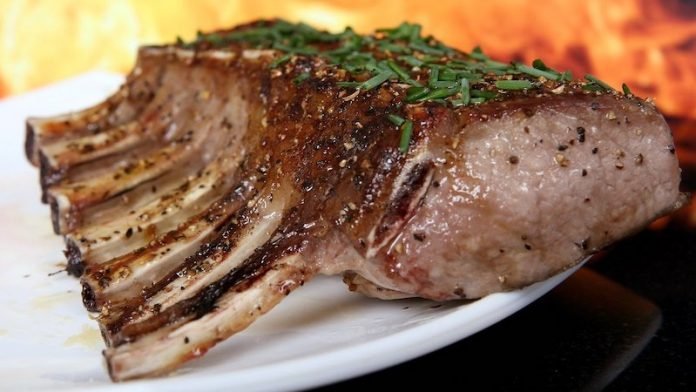
A new study from McGill University found saturated a high-fat diet leads to cellular reprogramming linked to prostate cancer progression.
These findings could help in identifying patients at higher risk of a more aggressive, lethal disease.
In addition, they suggest that dietary intervention involving the reduction of animal fat, and specifically saturated fat consumption in men with early-stage prostate cancer, could possibly diminish or delay the risk of disease progression.
The study is published in Nature Communications and was conducted by David P. Labbé et al.
Some genes—called oncogenes—play a role in cancer initiation and progression. MYC is one of those.
MYC is a key factor in tumorigenesis, i.e., it induces malignant properties in normal cells and fuels the growth of cancer cells.
In the study, the team stratified prostate cancer patients based on their fat intake—high-fat diet vs. low-fat diet—and the type of fat they eat—either saturated, monounsaturated, or polyunsaturated fat.
After integrating dietary and gene expression data from 319 patients, they discovered that animal fat and specifically saturated fat consumption mimicked a MYC overexpression.
Strikingly, patients who had the highest level of the saturated fat intake (SFI) MYC signature were four times more likely to die from prostate cancer, compared to patients with the lowest level.
Since fat consumption may link to an increase in body fat and obesity, and since obesity is also a risk factor associated with prostate cancer, the team used body mass index (BMI) to make sure that it was only saturated fat intake—and not obesity—that promoted the progression to a metastatic and lethal disease.
Even after removing obesity from the equation, patients with high levels of the SFI-MYC signature are still three times more likely to die of prostate cancer.
The study also shows that for saturated fat to induce MYC reprogramming, the tissue needs transforming.
In a prostate cancer patient, the prostate contains both tumor and normal tissue. This showed that saturated fat intake only affects the transcriptional program in the tumor tissue.
Altogether, the findings suggest that many prostate cancer patients may benefit from epigenetic therapies targeting MYC transcriptional activity or from dietary interventions.
Knowing the dietary pattern of a patient or his level of physical activity, clinicians could eventually suggest some specific intervention to decrease the likelihood of progression to a lethal disease.
Sign up for our newsletter for more information about this topic.
If you care about prostate cancer, please read studies about symptoms, tests, and treatments for the prostate cancer, and findings of the daily beverage that may lower prostate cancer risk.
For more information about prostate cancer, please see recent studies about the stuff in the body that can protect against prostate cancer, fatty liver disease, diabetes and results showing that scientists develop new drug for treating aggressive prostate cancer.
Copyright © 2022 Knowridge Science Report. All rights reserved.



